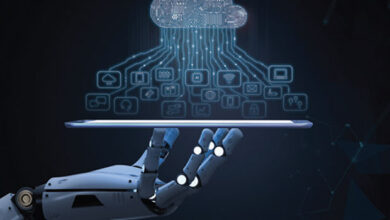The biggest factor in ubiquitous voice biometrics? Edge

Edge computing is about to do for voice biometrics what it has done for networked facial recognition infrastructure.
An analysis of market trends by the trade publication Speech Technology makes the case that cloud computing will never be the core of truly massive compute tasks like voice.
Edge will be the critical infrastructure at least until networks are a lot closer to frictionless and servers can sustainably and efficiently process amounts of data that even today are hard to imagine.
Citing information from market-analysis firm International Data Corp., the Speech Technology article reports that all of the world’s data is expected to hit 175 zettabytes in four years. That would be a compounded annual growth rate since 2018 of 61 percent.
(Some estimate that connected devices alone will process 120 zettabytes on the same timeline.)
It is no coincidence that edge will handle 75 percent of the world’s data volume in four years.
Edge architectures are inherently better suited to make voice biometrics common if not ubiquitous. It is the original argument for distributed computing: Many hands make light work.
Market research firm ReportLinker is predicting that the global market for voice biometrics will have more than tripled compared to 2020. Then, the market was about $1 billion, and it is predicted to top $3.4 billion in 2025.
Much of that growth will come from smarter portable devices and vehicles, but consumers are expected to readily acclimate to homes that sense more about occupants, including their voices.
Industry players like ID R&D and Synaptics have been partnering up to address this emerging market.
A CNN Style article quotes Jamie Cobb, the director of Map Project Office, a London-based industrial design firm, said software and infrastructure have caught up to predictions of almost-automated buildings.
Cobb said that speech systems will soon be interpreting the tone of a person’s voice, a capability that, among humans, seems to degrade with familiarity.







